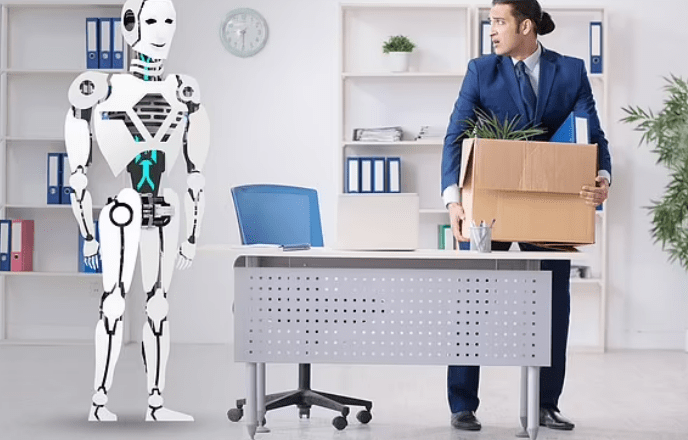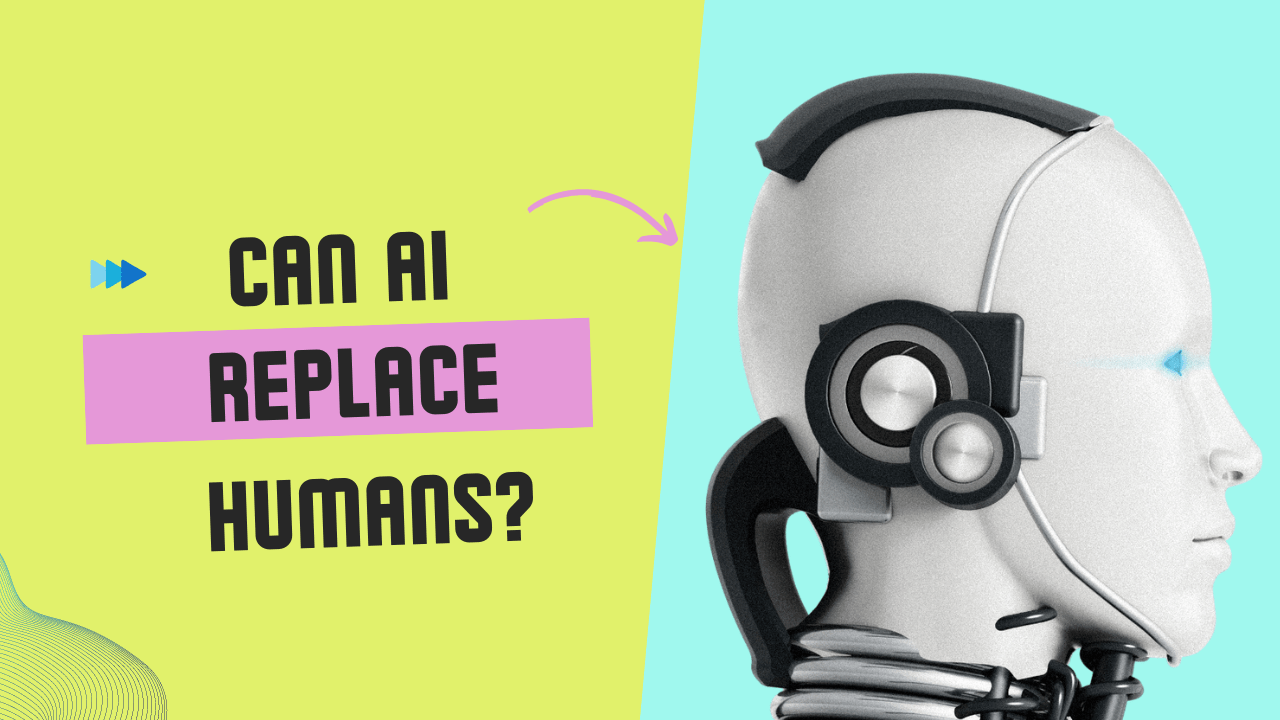Artificial intelligence (AI) has become increasingly important in technology and innovation. Every year, new advancements are made, and with them, the question that comes up is: Can AI replace jobs of humans?
It’s a popular topic of discussion that makes everyone anxious about what the future holds. Will we have to compete with computer programs or robots to get a job? Or is this just a fear that’s not grounded in reality?
Let’s take a closer look at the truths and myths surrounding AI and human jobs.
Can AI Replace Jobs?

Truth #1: AI can already perform some jobs better than humans.
It’s true that AI has the capability to do specific jobs that humans may not be as well-suited for. For example, AI can efficiently process massive amounts of data, perform routine tasks quickly, and work around the clock without getting tired.
However, it’s important to note that machines don’t have the same level of creativity and emotional intelligence as humans. Jobs that require these skills, such as writing, painting, acting, and counseling, are hard to replace with AI. So AI cannot replace jobs of human that are related to these smart tasks.
Myth #1: All jobs will be replaced by AI.
You may have read that robots will take over everything from factory jobs to teaching, but the truth is that this is a far-fetched idea. Yes, some jobs may disappear or change, but only the ones that are repetitive, dangerous, or mundane. For example, autonomous vehicles may replace truck drivers, but that doesn’t mean all driving jobs will be replaced.
Traditional jobs like doctors, accountants, and engineers will still require human interaction and oversight, while machines will assist with data analysis and decision-making.
Truth #2: AI can improve job quality and reduce workload.
Machines can take over some of the grunt work, leaving humans free to focus on more creative and fulfilling tasks. Machine learning algorithms can also identify patterns and predict the likelihood of future events, helping professionals make better decisions and prevent problems before they arise.
For example, in healthcare, AI can assist in reading medical images, detecting cancer, and predicting illnesses. This can help doctors to provide better care and prevent illnesses before they become life-threatening.
Also Read
- Top 5 Electric Cars in India under 10 Lakhs – Environmentally-friendly, Budget-Friendly, and Stylish Cars
- 8 Best AI Tools for PPT Makers for 2023
Myth #2: AI will create a jobless future.
One common misconception is that AI will take all our jobs, and we’ll be left with nothing to do. However, history has shown us that technological advancements create new jobs, even as they make some old jobs obsolete.
A lot of new jobs have already emerged in the field of AI, from data scientists to machine learning engineers. Plus, the creation of new products and services can always lead to new jobs that we can’t even imagine yet.
AI’s Impact on the Future of Work
While automation of tasks will save time and increase efficiency, it will also threaten jobs that humans once did. As AI continues to grow, low-skilled jobs in manufacturing, customer service, and other sectors will be replaced by machines. An Oxford Economics report shows that up to 20% of jobs will be replaced by automation by 2030. However, AI will also open up new avenues for work, enabling humans to concentrate on more creative and high skilled tasks.
AI in Manufacturing
One of the primary industries that AI is taking over is manufacturing. With the emergence of 3D printers and automation, machines can now do tasks that were once done by humans. For instance, before AI, humans were responsible for putting together parts of a car, but with the introduction of robots, cars could assemble themselves. Automation not only saves time but also breaks down any mistakes that humans make. So the question of whether Can AI replace jobs of humans is it cannot fully take over human work.
AI in Healthcare
Another industry that AI is transforming is healthcare. AI enables physicians to diagnose patients accurately and provide tailor-made treatment plans based on their individual needs. Machines can scan a patient’s medical history and predict which medication will work best. Even though the application of AI in healthcare is still in its early stages, it’s gradually making a positive impact on patient outcomes.
AI in Customer Service
Nowadays, AI chatbots are slowly taking over customer service jobs in industries such as online retail. Chatbots can now handle complex tasks, such as assisting customers to find the right product or resolving complaints. Companies are investing heavily in chatbots and other customer service automation tools to save money and time while offering high-quality service to their clients.
Final Words
In conclusion, AI will not replace humans in jobs, but it will transform the nature of work. Instead of viewing AI as a competitor, we can learn to collaborate with machines and harness their power to improve our lives and communities.
The challenge is to ensure that AI is used in a responsible and ethical way to create long-term benefits for humanity. This includes developing regulations that protect jobs and ensure that technology is used to enhance, rather than replace, human skills.
As technology evolves, it is inevitable that we will have to adapt and change, but we should do so in a way that fosters innovation and progress, without sacrificing our values and ethics.


3 thoughts on “Can AI Replace Humans in Jobs? The Truths and Myths”